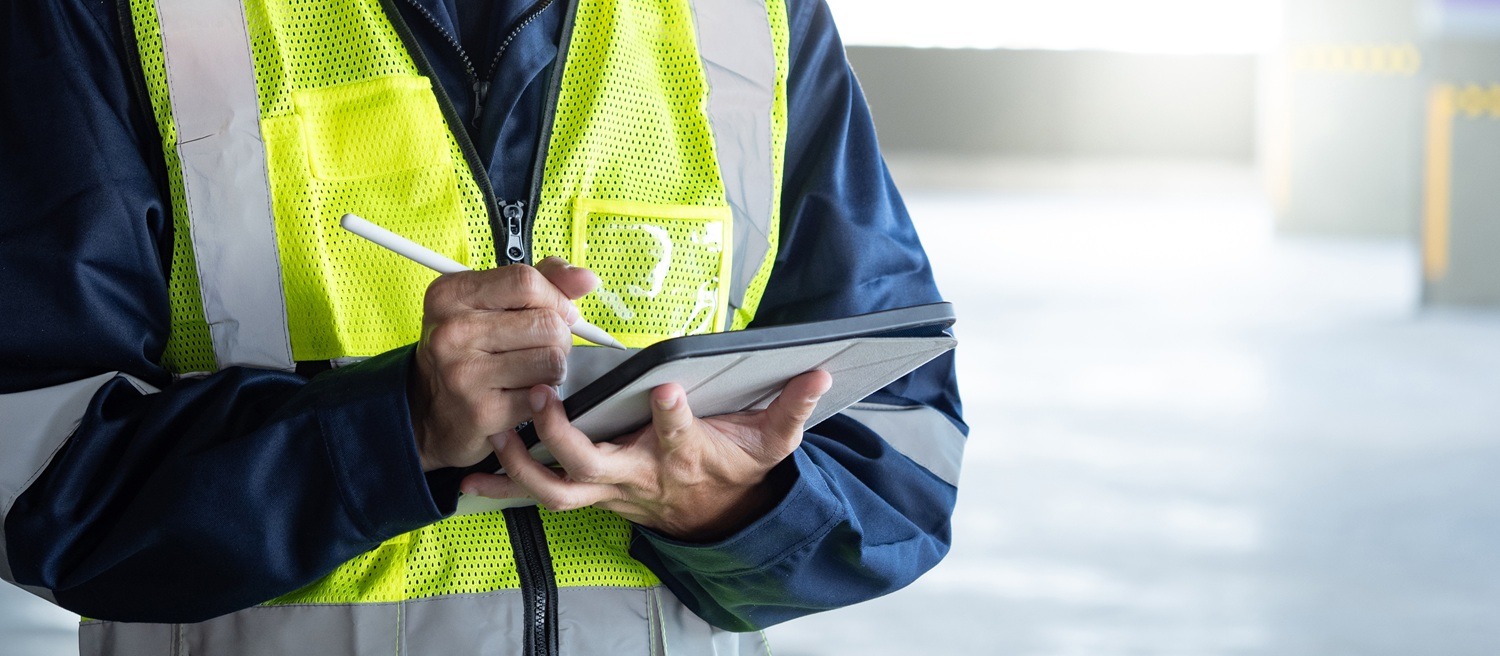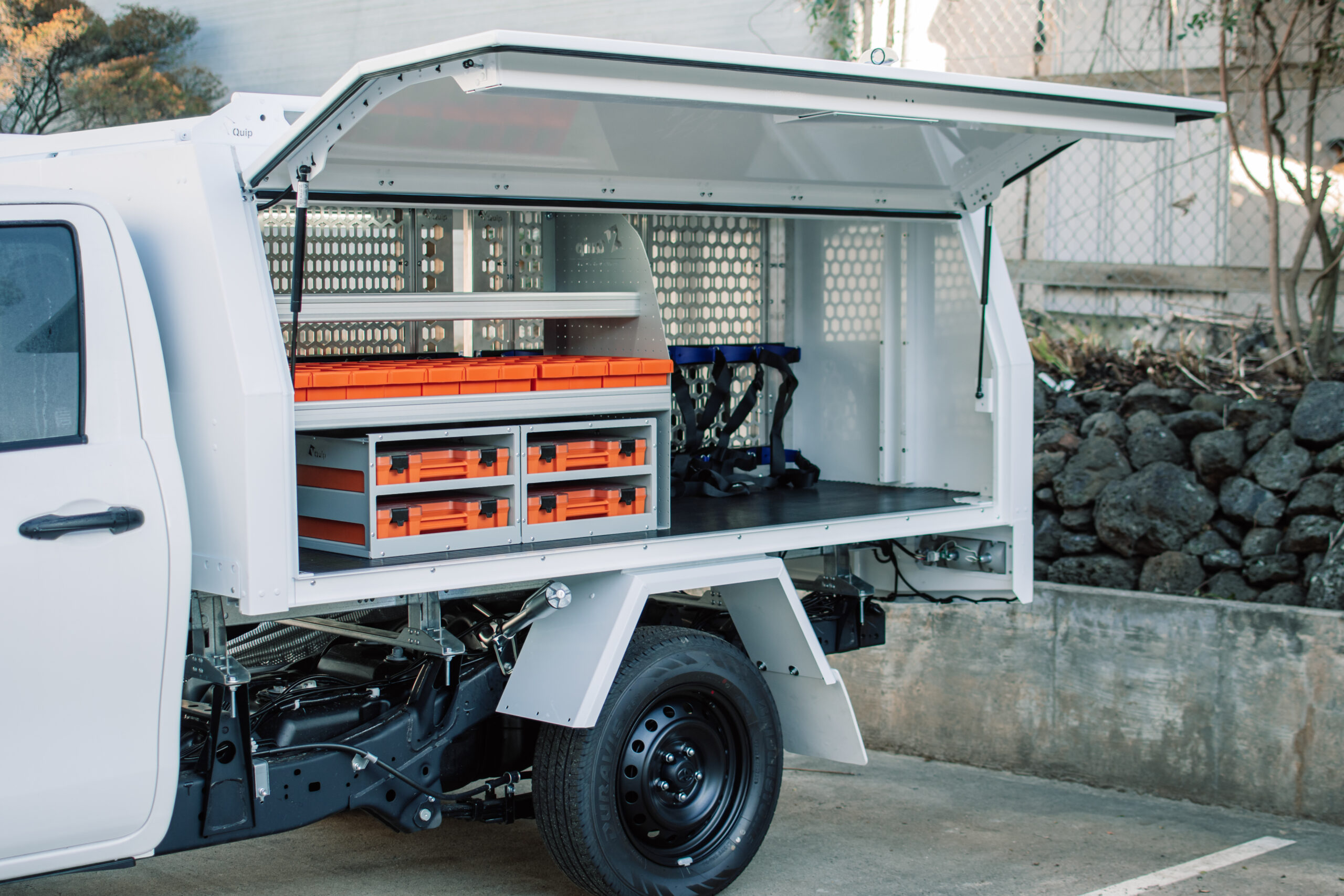
What to Look for in a Vehicle Fitout Partner: 7 Questions to Ask
May 8, 2025
When it comes to fitting out your commercial vehicles, choosing the right partner can make or break the success of your fleet. The right fitout partner won’t just install shelves and racks—they’ll help you design a tailored solution that improves safety, efficiency, compliance, and the day-to-day productivity of your team. But with so many providers in the market, how do you know you’re making the right choice?
Here are seven essential questions to ask when selecting a fitout partner for your fleet.
- Do they understand the unique needs of your industry?
Every industry has different demands when it comes to vehicle fitouts. A plumbing business might prioritise secure storage for heavy tools and pipe carriers, while an HVAC company may need specialised racks for gas bottles and parts bins for small components.
Ask potential fitout partners about their experience working with businesses in your sector. Do they have proven designs or case studies that show they understand what your technicians need? A good partner will already be thinking ahead about challenges specific to your industry—like compliance requirements, typical payloads, and workflow needs on the job.
👉 Tip: Request to see photos or visit completed fitouts they’ve done for similar businesses.
- Can they customise the fitout to your operations—or are they offering a one-size-fits-all solution?
Every business operates a little differently, even within the same industry. You might have specific preferences for how equipment is stored, certain tools that require secure access, or branding guidelines that need to be incorporated into the build.
Some fitout companies only offer standard packages with limited flexibility. That might work for small fleets, but if you’re managing a large or growing fleet, you need a partner who can adapt solutions to your needs.
Ask whether they can provide custom layouts, modular systems, or adjustable components that can grow with your business. A flexible fitout ensures your fleet remains functional and adaptable over time.
- Do they prioritise safety and compliance with Australian standards?
Vehicle fitouts should comply with a range of safety standards in Australia, as well as occupational health and safety obligations. Poorly secured loads or non-compliant modifications can expose your business to serious risks, including fines, insurance issues, or workplace injuries.
A reputable fitout partner will be able to explain how their designs meet Australian Standards, and may even provide compliance documentation with each build.
👉 Ask them directly: “How do you ensure your fitouts comply with Australian safety standards?”
- What materials do they use—and how do they balance weight and durability?
Weight matters. Every kilo added to your vehicle counts toward its Gross Vehicle Mass (GVM), and exceeding this limit can lead to compliance breaches, increased wear on the vehicle, or even mechanical failures. At the same time, you need materials tough enough to withstand daily use.
The best fitout partners will offer solutions that strike the right balance between strength, durability, and lightweight design. For example, aluminium shelving or composite panels might reduce weight without compromising strength.
Ask about their choice of materials and whether they provide engineering certification or testing to back up their claims.
- How do they manage the fitout process—from consultation to delivery?
A great fitout partner won’t just sell you products—they’ll guide you through a structured process that ensures you get what you need.
Look for a partner who offers:
✅ An in-depth consultation process to understand your operational needs
✅ CAD designs or 3D models for review before production
✅ Clear timelines for production and installation, as well as clarity on where the fitout is up to through the process through online portals
✅ Project management support to keep everything on track
👉 Ask: “What’s your process from design to delivery?” You want a partner who communicates clearly, keeps you informed, and can manage fitouts across multiple vehicles or sites if needed.
- Can they support your fleet as it grows or changes?
Your business won’t stay static—and your fleet shouldn’t either. Whether you’re adding new vehicles, replacing old ones, or expanding into different regions, you’ll need a fitout partner who can support you long-term.
Ask if they can replicate fitouts across multiple vehicles to maintain consistency across your fleet. Do they have facilities in different states to handle national rollouts? Can they retrofit or upgrade existing fitouts?
A fitout partner who understands scalability and lifecycle management will be invaluable as your business evolves.
- Do they stand behind their work with a solid warranty and after-sales support?
Even the best-designed fitouts need occasional maintenance or adjustment. Check whether your fitout partner offers a warranty on workmanship and materials, and what their process is if something goes wrong.
Good after-sales support could include:
✅ Warranty repairs
✅ Replacement parts
✅ Modifications or upgrades as your needs change
👉 Ask: “What warranty and after-sales support do you provide?” You want a partner who’s committed to backing their work—not disappearing after the invoice is paid.
Final Thoughts: More Than Just a Supplier
Choosing a fitout partner is about more than just picking a supplier—it’s about finding a collaborator who will help drive the success of your fleet. By asking these seven questions, you’ll uncover which providers are truly invested in delivering value, safety, and long-term support for your business.
At VQuip, we believe the right fitout is one that doesn’t just fill a van—it fuels your operations, empowers your workforce, and keeps your business moving forward. If you’re looking for a fitout partner that understands your business, contact us today to discuss how we can help.





